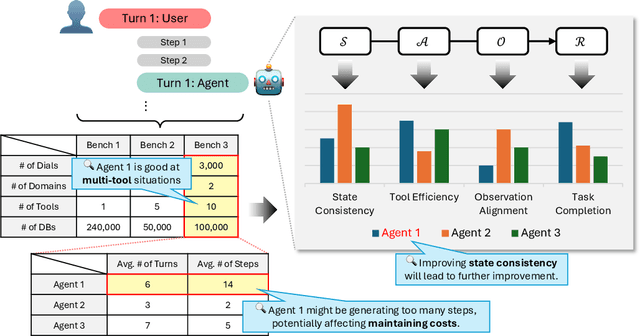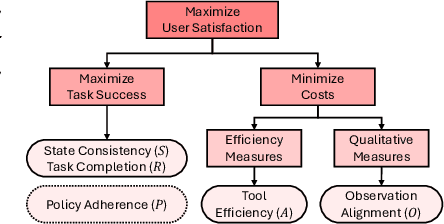PIPA: A Unified Evaluation Protocol for Diagnosing Interactive Planning Agents
Paper and Code
May 02, 2025



The growing capabilities of large language models (LLMs) in instruction-following and context-understanding lead to the era of agents with numerous applications. Among these, task planning agents have become especially prominent in realistic scenarios involving complex internal pipelines, such as context understanding, tool management, and response generation. However, existing benchmarks predominantly evaluate agent performance based on task completion as a proxy for overall effectiveness. We hypothesize that merely improving task completion is misaligned with maximizing user satisfaction, as users interact with the entire agentic process and not only the end result. To address this gap, we propose PIPA, a unified evaluation protocol that conceptualizes the behavioral process of interactive task planning agents within a partially observable Markov Decision Process (POMDP) paradigm. The proposed protocol offers a comprehensive assessment of agent performance through a set of atomic evaluation criteria, allowing researchers and practitioners to diagnose specific strengths and weaknesses within the agent's decision-making pipeline. Our analyses show that agents excel in different behavioral stages, with user satisfaction shaped by both outcomes and intermediate behaviors. We also highlight future directions, including systems that leverage multiple agents and the limitations of user simulators in task planning.
 Add to Chrome
Add to Chrome Add to Firefox
Add to Firefox Add to Edge
Add to Edge